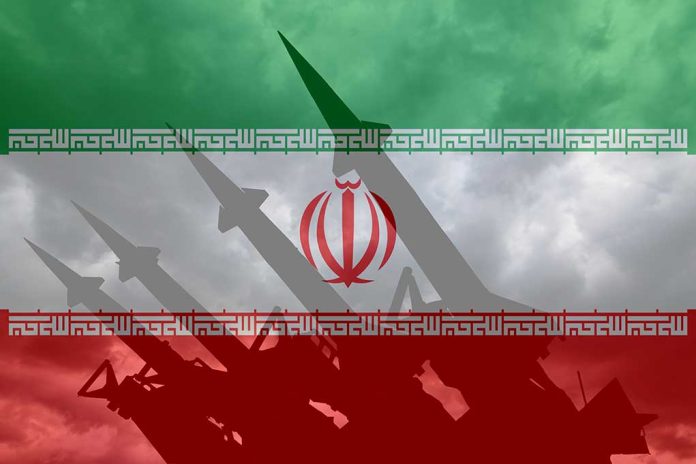
US and UK officials raise alarms over alleged Russia-Iran nuclear cooperation, fearing a new global threat.
At a Glance
- US and UK suspect Russia is sharing nuclear secrets with Iran in exchange for ballistic missiles
- Iran’s uranium stockpile has grown significantly, raising concerns about nuclear weapons development
- Western powers condemn the alleged arms deal between Iran and Russia
- Iran denies seeking nuclear weapons and sending missiles to Russia for use in Ukraine
Growing Concerns Over Russia-Iran Nuclear Cooperation
American and British leaders are sounding the alarm over a suspected nuclear cooperation between Russia and Iran. Intelligence sources suggest that Moscow may be sharing critical nuclear secrets with Tehran in exchange for ballistic missiles, potentially to be used in the ongoing conflict in Ukraine. This development has sparked serious concerns among Western powers, who view it as a significant threat to global security.
President Joe Biden and UK Prime Minister Keir Starmer reportedly discussed these concerns during private meetings in Washington. The issue has also been raised by US Secretary of State Antony Blinken during his recent trip to London, highlighting the gravity of the situation.
Iran’s provision of ballistic missiles in direct support of Russia’s war against Ukraine is a threat to European and global security. Today, @StateDept and @USTreasury are imposing sanctions on individuals and entities supporting such activities.
— Secretary Antony Blinken (@SecBlinken) September 11, 2024
Iran’s Growing Nuclear Capabilities
Western nations are increasingly worried about Iran’s expanding nuclear program. The International Atomic Energy Agency reports that Tehran has amassed approximately 313.2 pounds of uranium enriched up to 60% – a level just shy of weapons-grade. Experts note that roughly 92.5 pounds of uranium at this level of enrichment could theoretically be used to produce a nuclear weapon.
“For its part, Russia is sharing technology that Iran seeks, this is a two-way street, including on nuclear issues as well as some space information,” Blinken told reporters
Britain, France, and Germany have warned that Iran’s stockpile of highly enriched uranium has grown significantly without any credible civilian justification. This development has exacerbated fears about Iran’s nuclear ambitions, especially in light of ongoing tensions in the Middle East.
International Response and Denials
The G7 nations have strongly condemned the alleged arms deal between Iran and Russia, calling for an immediate halt to such transfers. Western powers argue that there is no legitimate civilian reason for Iran’s level of uranium enrichment, while Tehran maintains that its nuclear program is peaceful.
“Iran must immediately cease all support to Russia’s illegal and unjustifiable war against Ukraine and halt such transfers of ballistic missiles, UAVs and related technology, which constitute a direct threat to the Ukrainian people as well as European and international security more broadly,” the ministers said in a statement.
Iran vehemently denies these accusations, dismissing the impact of Western sanctions and refuting claims of weapons transfers to Russia. Iranian Foreign Minister Abbas Araghchi criticized the sanctions as ineffective and called for dialogue based on mutual respect, stating, “It’s surprising that Western countries still do not know that sanctions are a failed tool and that they are unable to impose their agenda on Iran through sanctions.”
As tensions continue to escalate, the international community remains vigilant, closely monitoring the situation and considering potential responses to this alleged cooperation between Russia and Iran. The implications of such a partnership could have far-reaching consequences for global security and geopolitical stability.













